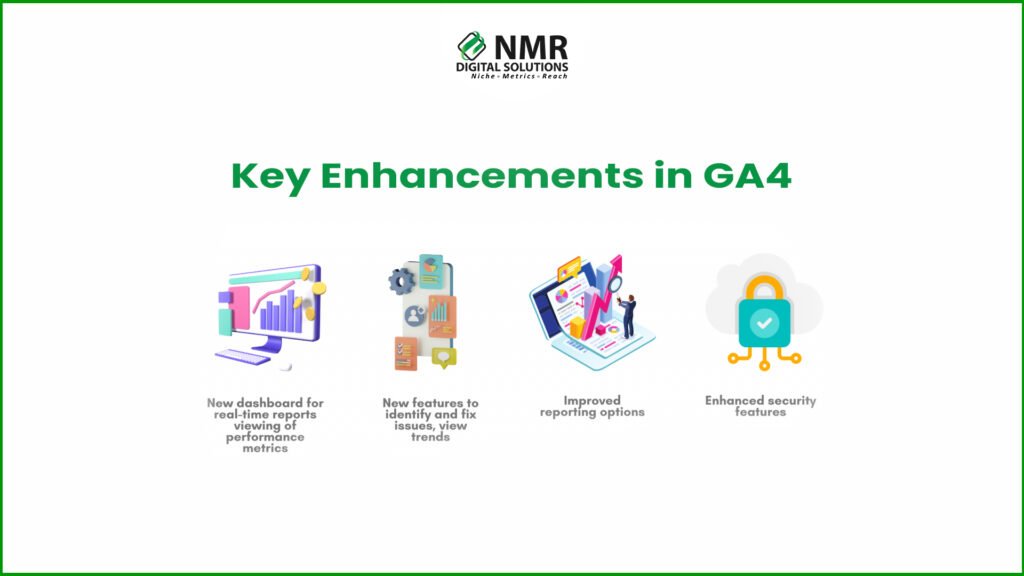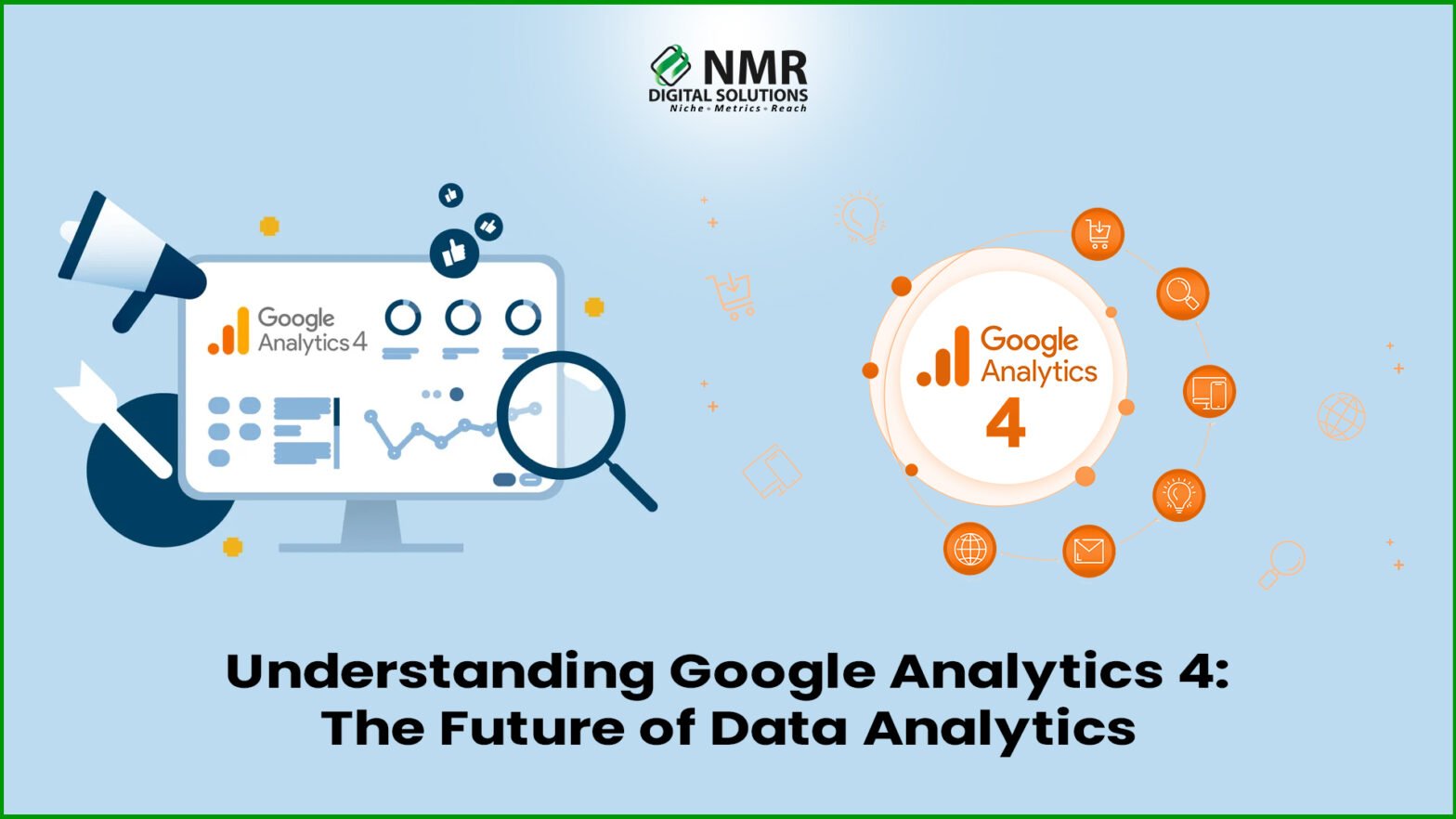In October 2020, Google Analytics 4 (GA4) was introduced as the next-generation analytics platform, replacing the long-standing Universal Analytics. With its event-based data model, GA4 provides a more adaptable and future-ready framework, allowing businesses to gain detailed insights into user behaviours across devices and sessions. Unlike Universal Analytics, which focused on sessions and hits, GA4 centers around events and user properties, enabling more granular tracking of user interactions.
One of GA4’s standout features is cross-device tracking ga4, which overcomes a major challenge from Universal Analytics by providing a comprehensive view of user journeys across different devices. By leveraging machine learning, GA4 enables accurate user identification across platforms, helping businesses understand how users move from one device to another.
For eCommerce, GA4 brings significant advancements, including a specialized eCommerce report that offers insights into product views, cart additions, purchases, and revenue data. By focusing on these metrics, businesses can better track conversion rates and make informed decisions.
Here are some key reasons why eCommerce businesses should consider migrating to GA4:
Key Enhancements in GA4

1. Advanced Data Modelling
GA4 uses an event-based advanced data modelling techniques that collects information automatically and allows for customized event tracking. Unlike its predecessor, GA4’s model is built to adapt to various user interactions, offering a more detailed view of user behaviour.
2. AI-Driven Metrics
GA4 incorporates AI driven metrics for predictive insights, such as purchase probability, churn probability, and revenue forecasting, without relying on cookie tracking. These metrics allow businesses to anticipate customer actions and tailor marketing strategies accordingly.
3. Comprehensive Event Tracking:
GA4 provides extensive options for ga4 event tracking, including default and enhanced events. Businesses can customize events to align with their unique goals and gain a deeper understanding of how users interact with their site or app.
4. Enhanced Engagement Metrics
With GA4, businesses can track user engagement metrics based on time spent and actions taken, such as conversions and page views. These insights help identify which content is most effective at capturing and holding user attention.
5. BigQuery Integration
A feature previously exclusive to Google Analytics 360, GA4 now offers BigQuery integration for all users, enabling sophisticated data analysis and machine learning applications. This integration helps transform raw data into actionable insights.
6. Access to Unsampled Data
GA4 provides access to unsampled data, which was once limited to enterprise accounts. With unsampled data, businesses gain a more accurate representation of user behaviour, even with large datasets.
7. Refined Audience Segmentation
The platform’s segmentation capabilities allow for highly targeted marketing efforts. GA4’s segmentation is based on user behaviours and journeys across platforms, enabling businesses to optimize customer engagement and ad targeting.
8. Cross-Platform User Journey Tracking
GA4 allows for seamless cross-platform tracking, bringing together data from websites, apps, and other digital touchpoints. This feature enables businesses to visualize a complete user journey and provides insights into each stage of the customer lifecycle.
Why Switch to GA4?

The switch to GA4 isn’t just about staying up-to-date with Google’s latest tools—it’s about leveraging cutting-edge analytics to gain a deeper understanding of your customers and make data-driven decisions. With a focus on privacy, machine learning, and cross-platform tracking, GA4 aligns well with modern business needs. GA4 also simplifies compliance with privacy regulations, such as GDPR, by enhancing data security and giving businesses greater control over customer data.
GA4’s predictive capabilities make it particularly valuable for enterprise businesses, helping forecast revenue, understand potential customer churn, and create targeted marketing campaigns. Its advanced eCommerce tracking provides invaluable insights into sales performance and customer purchasing behaviours, empowering businesses to refine their strategies and boost conversion rates.
Conclusion
Google Analytics 4 (GA4) is a game-changing tool for businesses looking to gain deeper insights into user behavior and optimize their digital strategy. Its enhanced data modelling, AI-driven metrics, and robust cross-platform tracking provide a more accurate and comprehensive view of customer interactions across devices. By transitioning to GA4, businesses can improve their data accuracy, ensure better privacy compliance, and utilize advanced eCommerce tracking to drive performance. As Universal Analytics phases out, embracing GA4’s powerful features will be essential for staying competitive and data-informed.
